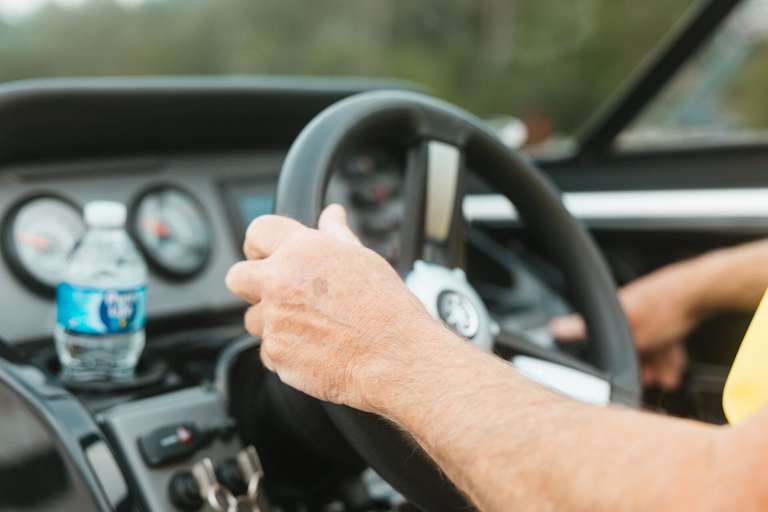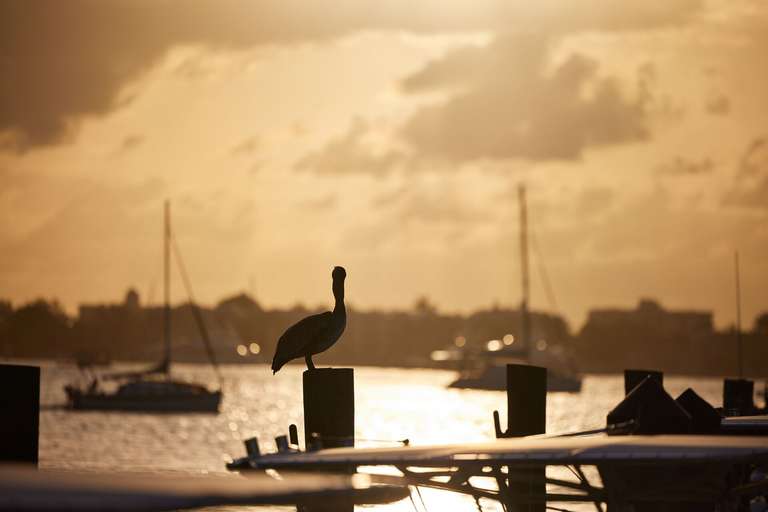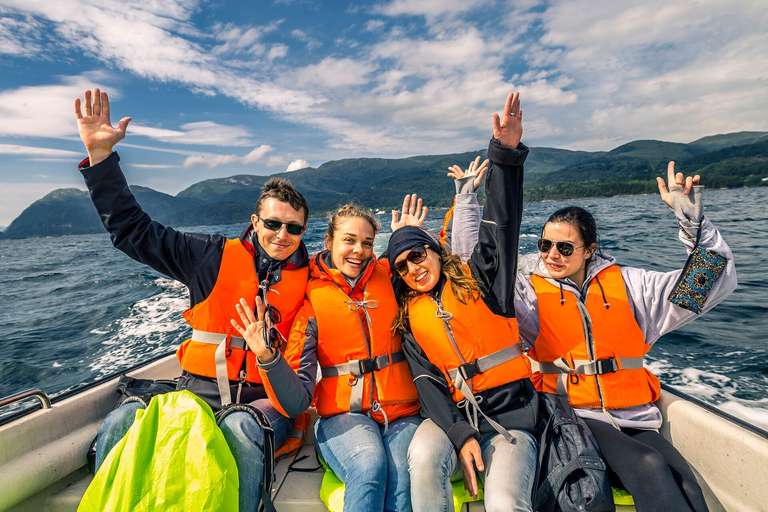How to Prevent and Survive Boat Capsizing and Falls Overboard

Falling into the water is a real risk when getting onto a boat. This is why it is crucial always to wear a life jacket.
According to the U.S. Coast Guard, in 2023, 75% of boating fatalities were caused by drownings. Additionally, 87% of those victims were not wearing a life jacket.
However, even while wearing a life jacket, boat operators need to know how to avoid boat capsizing or passengers falling overboard.
Today, we look at how to avoid capsizing and what to do if someone unintentionally ends up in the water.
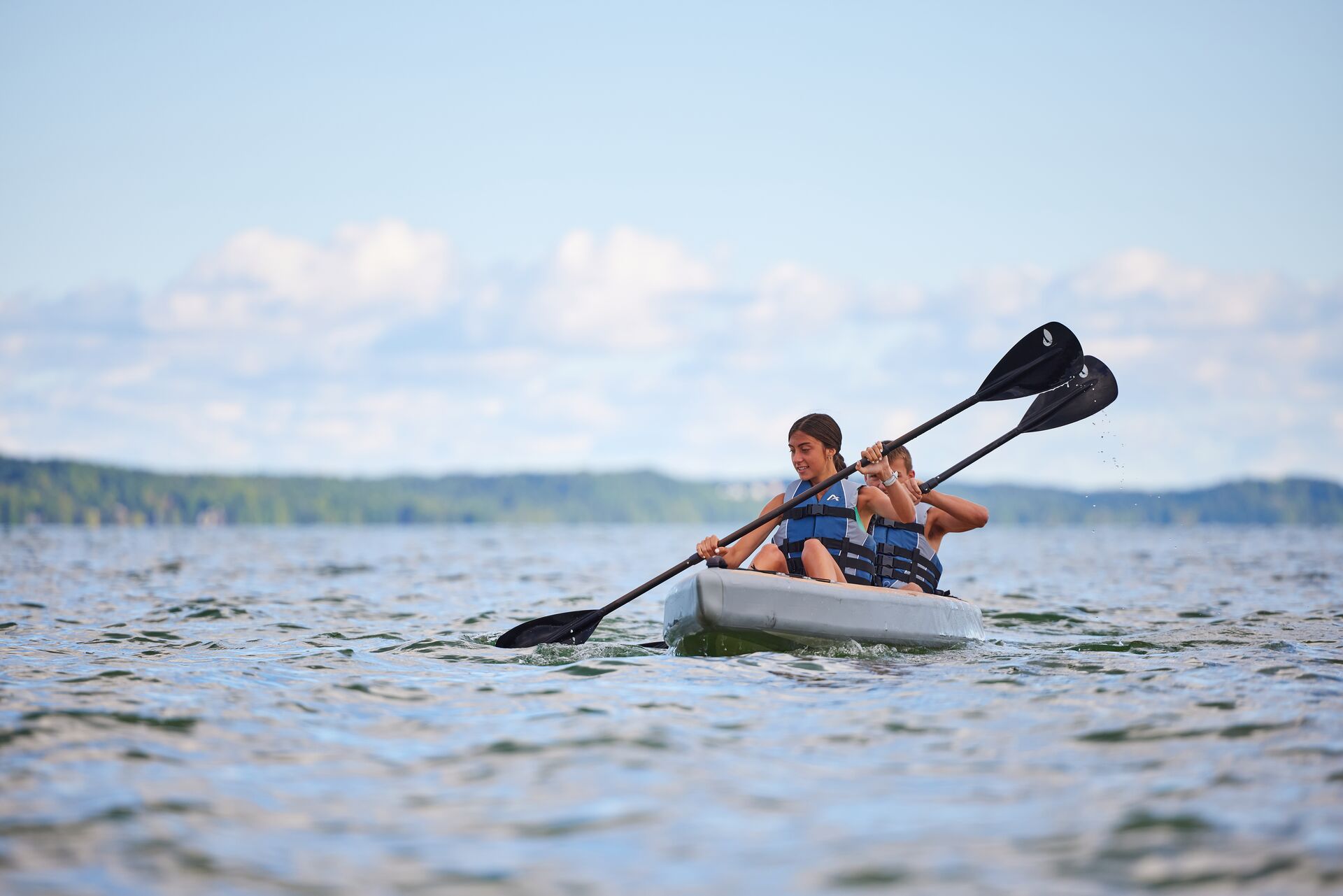
What is Boat Capsizing?
Capsizing occurs most often in small boats such as canoes or sailboats. This can happen when a boat is overturned or swamped with water.
When smaller boats capsize, they are more likely to stay afloat, providing those in the water something to hold or climb onto.
How Are Passengers Most Likely to Fall Overboard?
A capsize isn't the only way people can end up in the water.
The most common ways for boat passengers to end up in the water are:
- Being caught off guard. A large wave or a sharp turn can easily throw a passenger out of the boat.
- Carrying too much weight. Too much weight or unbalanced weight can cause a boat to take on water.
- Bad weather. Storms can cause sudden, unexpected conditions that can cause the boat to take on water or cause a passenger to fall out of the boat.
As the boat operator, you are responsible for piloting the boat in a way that minimizes these risks so you and your passengers can remain safely on board.
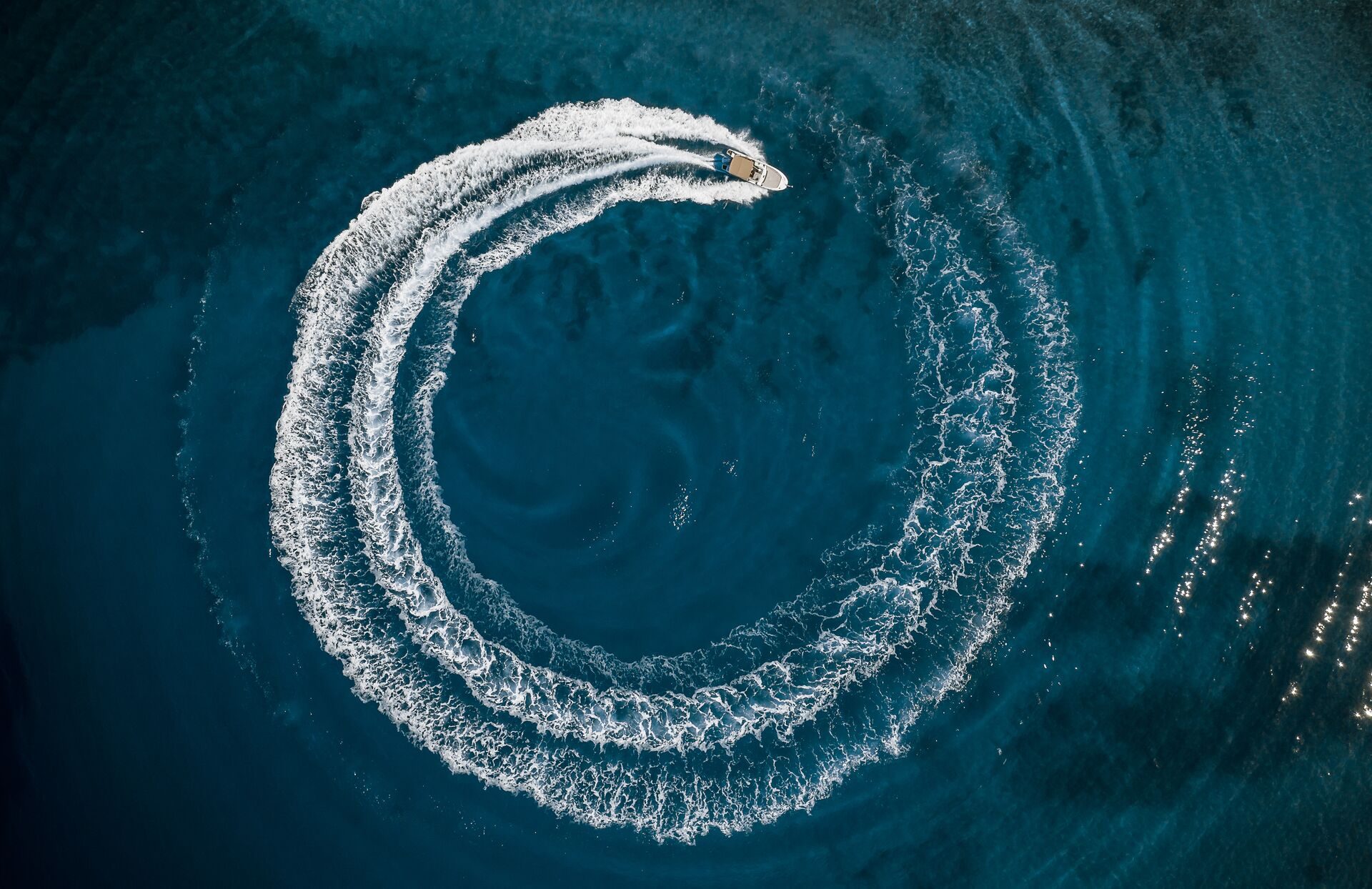
How to Prevent Boat Capsizes and Falls Overboard
Boaters can do a few easy things to help prevent boating accidents and overboard emergencies.
Follow these tips to boat safely and prevent capsizes and falls overboard:
- Stay low and centered; always maintain three contact points when moving around on a boat.
- Always take corners at a safe speed and angle.
- Watch for wakes and take them head-on from the bow.
- Always reduce your speed if you are caught out in bad weather.
- Never tie the anchor to the stern of your boat. Placing additional weight at the back of the boat increases the chances of capsizing or swamping your boat.
Understand your boat's capabilities and your driving abilities when operating watercraft. If you're not sure how to navigate in the ways described above, bring along a more experienced friend to help you learn safe boating practices.
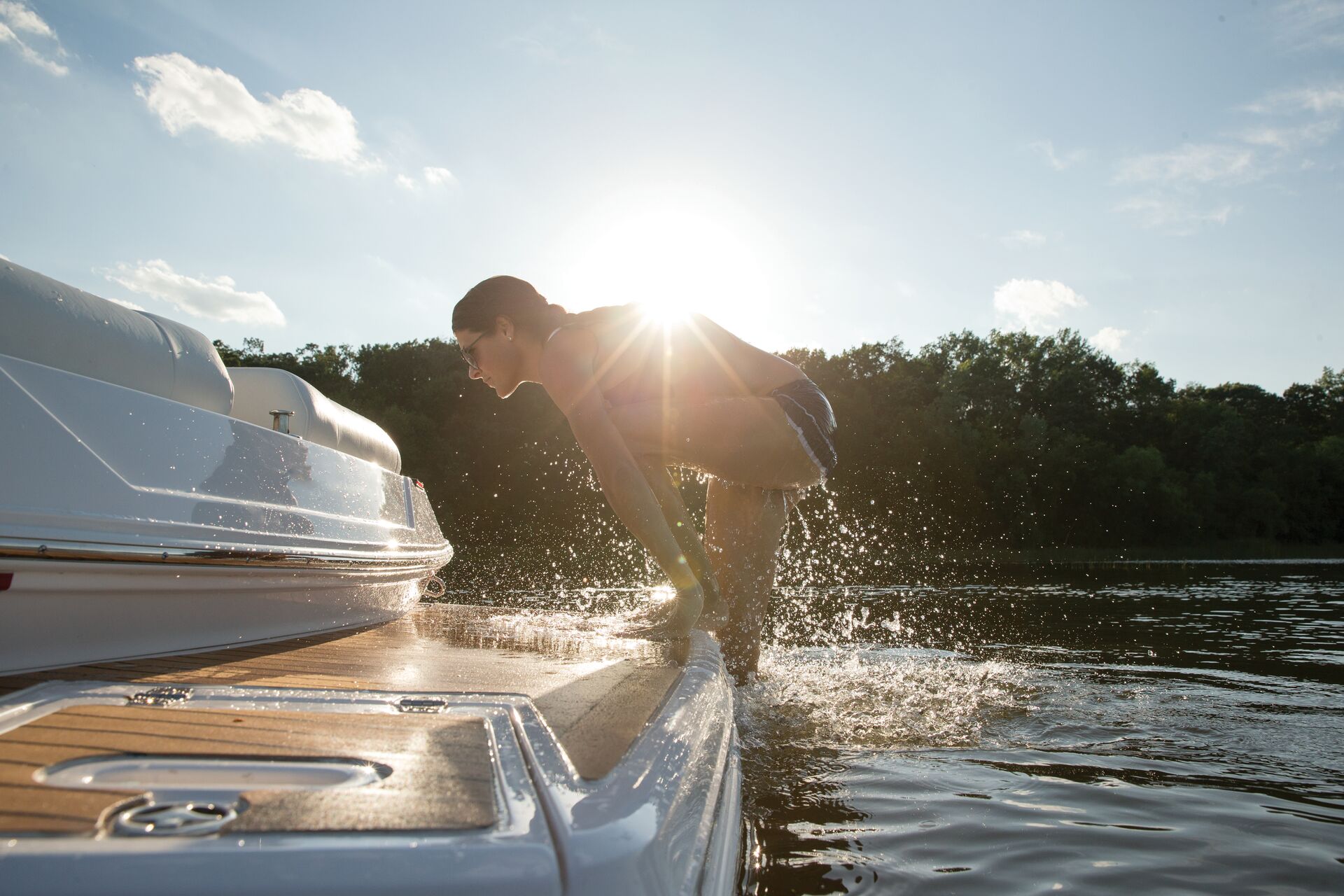
What Should You Do if a Person Falls Overboard?
Whether a person ends up in the water because speed, a sudden turn, or rough waters were a factor — or because they were behaving in an unsafe way that caused them to fall overboard — it's crucial to know what to do if it happens.
Follow these steps:
- Immediately slow down and stop the boat.
- Quickly throw a buoy or a life jacket to the person overboard. If they can't stay afloat, it will mark their location in the water if they go under.
- Assign someone to keep an eye on the overboard person and point at their location at all times.
- Get the boat close enough to reach the overboard person on the operator's side of the boat.
- Throw a buoyant heaving line, or a lifebuoy attached to your boat, to the person overboard.
- If possible, get the overboard person to the boarding ladder to pull them in.
If your boat doesn't have a ladder, drape a rope or chain across the stern to use.
Always turn off the engine! In most cases, an overboard person will climb back into the boat from the stern.
How to Survive If Your Boat Capsizes or You Fall Overboard
What happens if you're the boat's operator and you fall overboard? What if your passengers also end up in the water from a boat capsizing?
If you fall into the water:
- Stay calm to conserve energy.
- If you are with others, stay together and make sure everyone is accounted for.
- Re-board your boat as soon as possible.
- Stay with the boat unless it is headed for a hazard. Small boats tend to float, so holding on to the boat will help you stay above water and conserve energy, making you more visible.
- If you are separated from your boat while in fast-moving water, such as a river, float on your back with your feet pointed downstream.
- Get out of the water as quickly as possible.
Make sure you help the others in the water with you. Flag down nearby boats and call for help if there are any injuries.
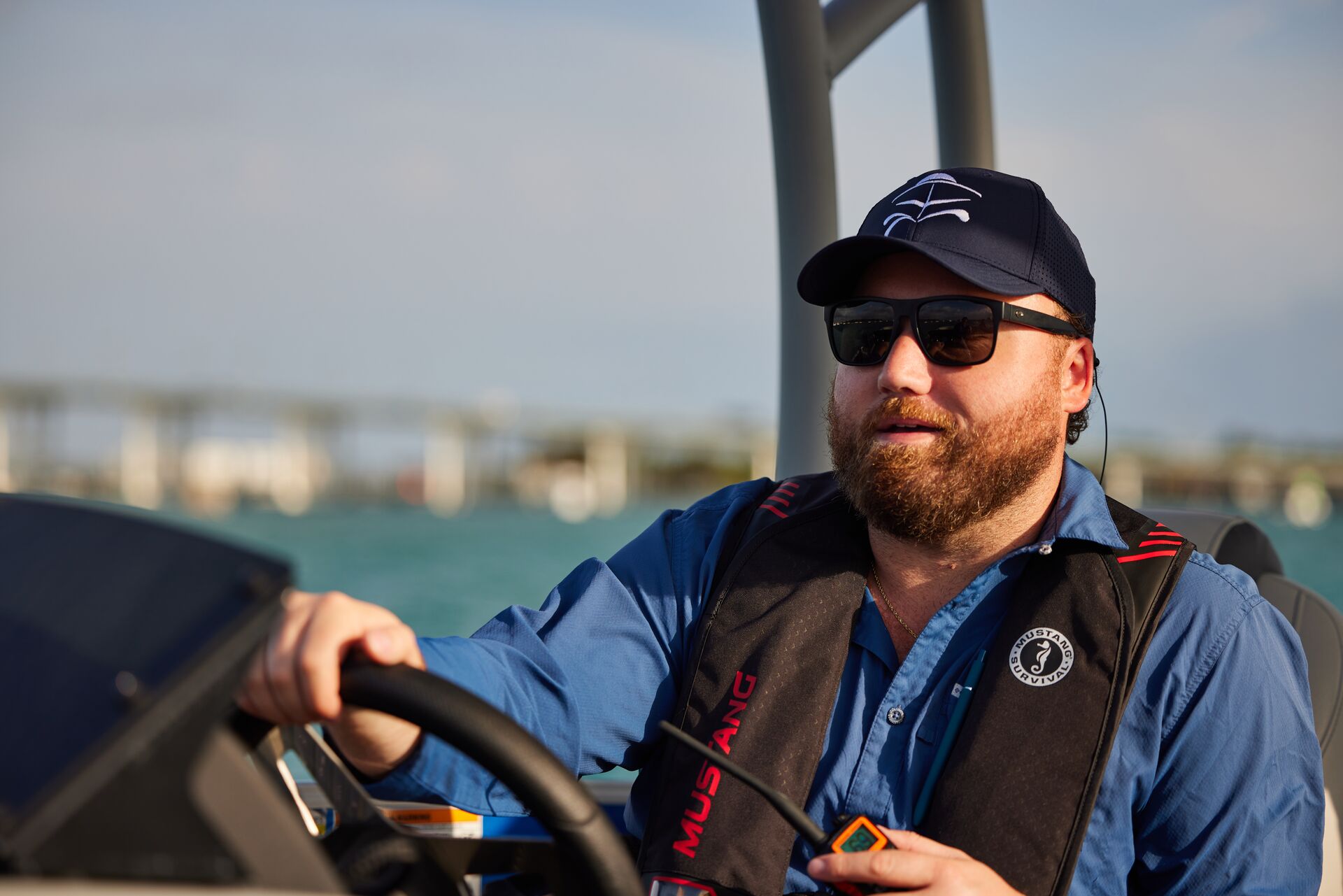
Learn More About Safe Boating with Boater Education
We hope your boat never capsizes and you are never in a situation where you or a passenger falls overboard. However, it's crucial to know what to do in these situations to help everyone recover safely.
More importantly, it's best to avoid these situations when boating. To do that, boat operators need a thorough understanding of safe boating practices, including navigating the waters to avoid accidents.
Taking a boater education course is the best way to gain this knowledge and prepare you for many safe adventures on the water. ilearntoboat offers online, gamified courses that make learning fun. Our courses also meet state requirements for boating education!
So, take what you learned today in this resource and the boater education course that applies to your state, then hit the water and have some fun!
First published in 2021. Content most recently reviewed and updated for accuracy and recency July 25, 2024.

